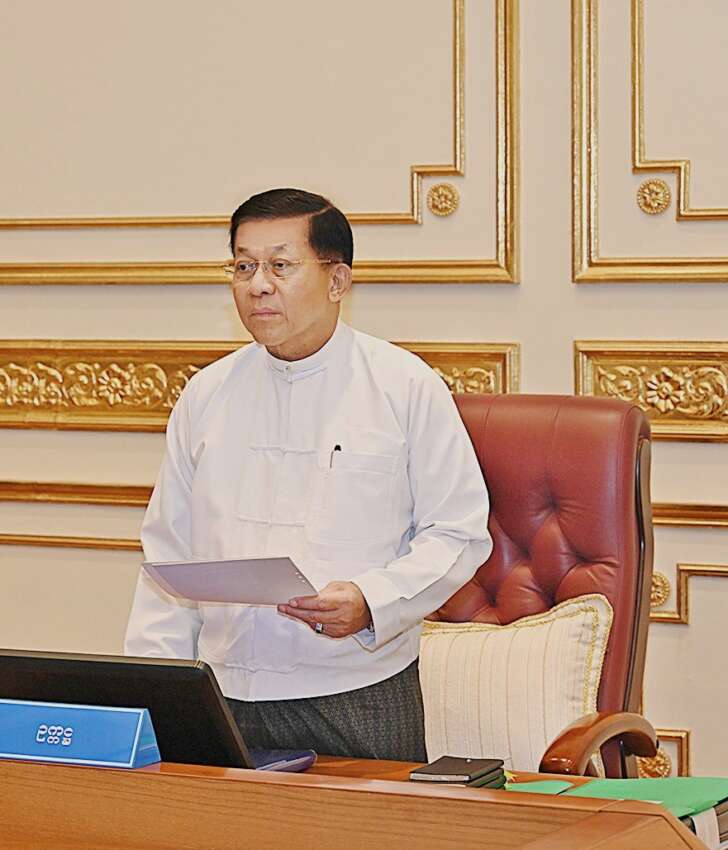
At the National Planning Commission meeting in Naypyidaw, military council leader Min Aung Hlaing announced the need for security and law enforcement measures to conduct elections this December. He emphasized the importance of systematically implementing security operations across states and regions, stating that the country needs to boldly pursue initiatives to strengthen its political, economic, and defense capabilities.
According to the National Unity Government (NUG), resistance forces and ethnic armed organizations currently control more than half of the country. A former Shan ethnic parliamentary candidate who participated in the 2020 elections analyzed that nationwide elections would be impossible under current circumstances. He suggested that the military would likely only conduct partial elections in areas under their control, resulting in what he termed a ‘nominal parliament’ and ‘nominal government.’ The politician explained that any resulting government would remain under military control, offering little prospect for resolving the country’s political crisis or achieving peace.
The same Shan politician speculated that after the elections, military council leader Min Aung Hlaing might become president by being nominated as a vice-presidential candidate either through the Union Solidarity and Development Party or as a military representative in parliament. The military council leader had seized power on February 1, 2021, by arresting the democratically elected government leaders, claiming electoral fraud in the 2020 elections. Current assessments suggest no significant changes are likely regarding the country’s political crisis and peace prospects, with the planned elections viewed as a mechanism to formalize military control through civilian proxies rather than a genuine democratic process.



